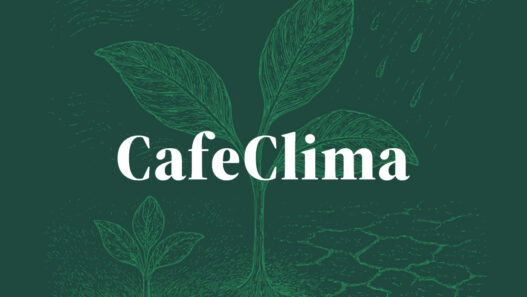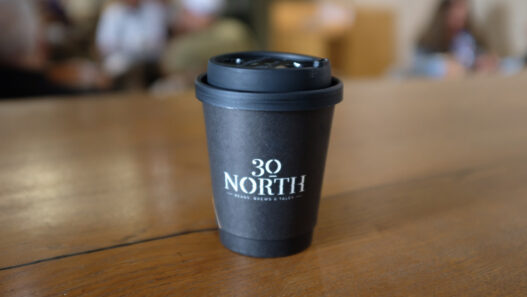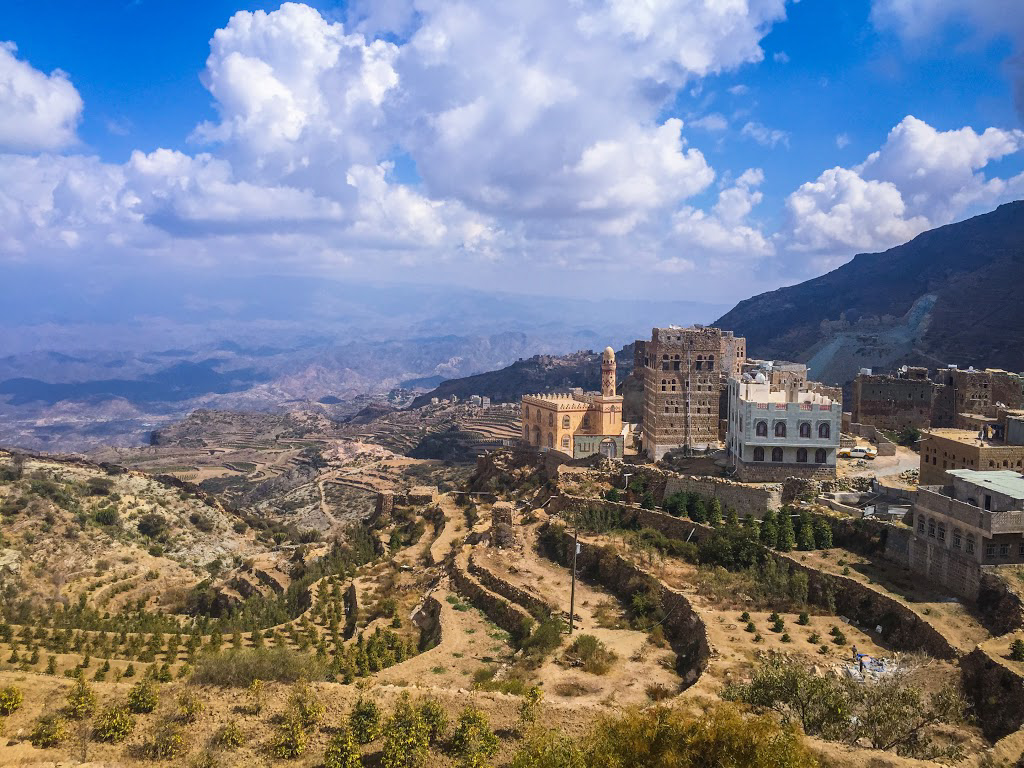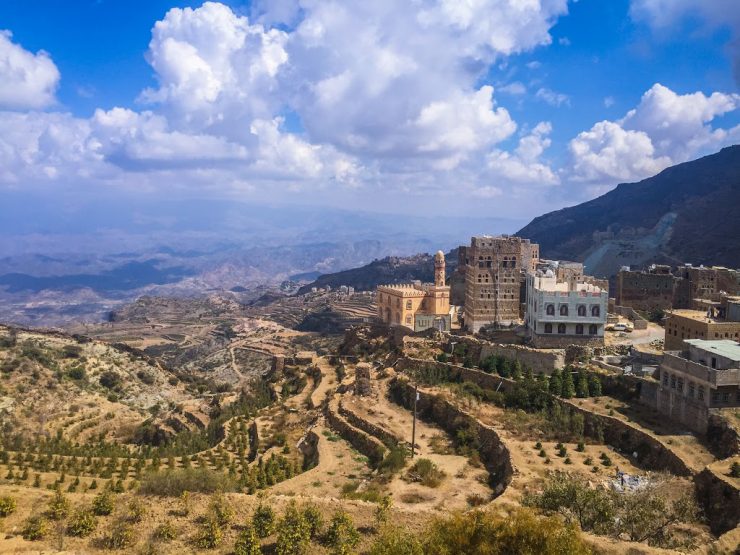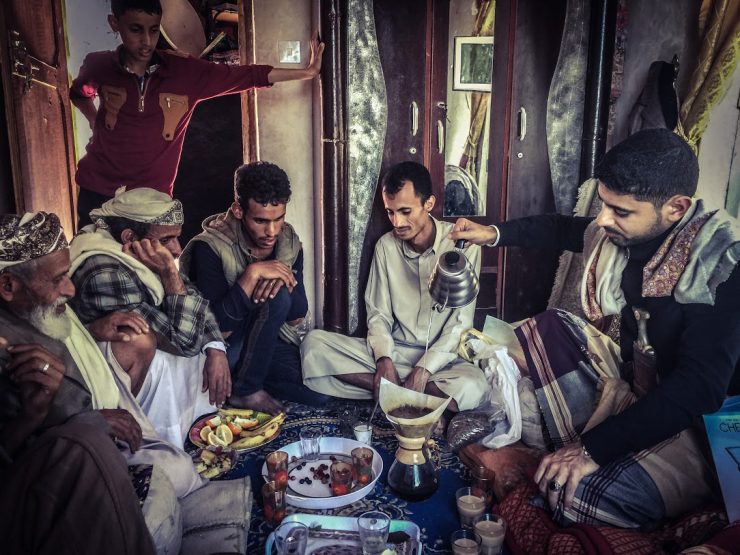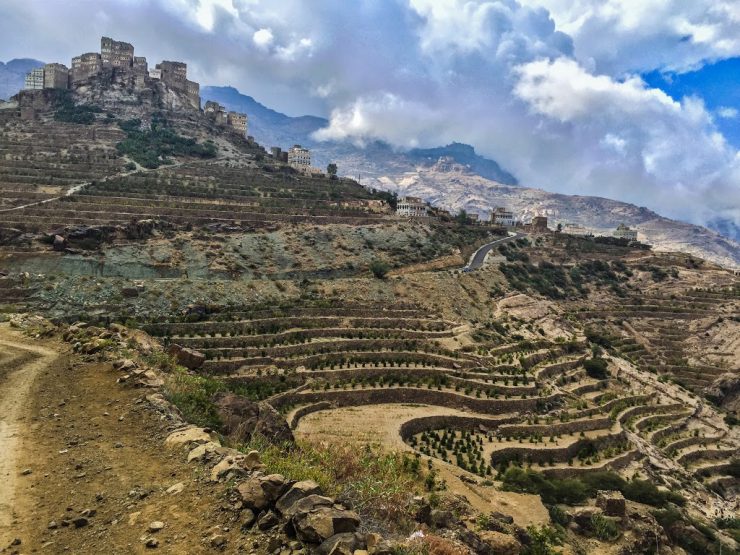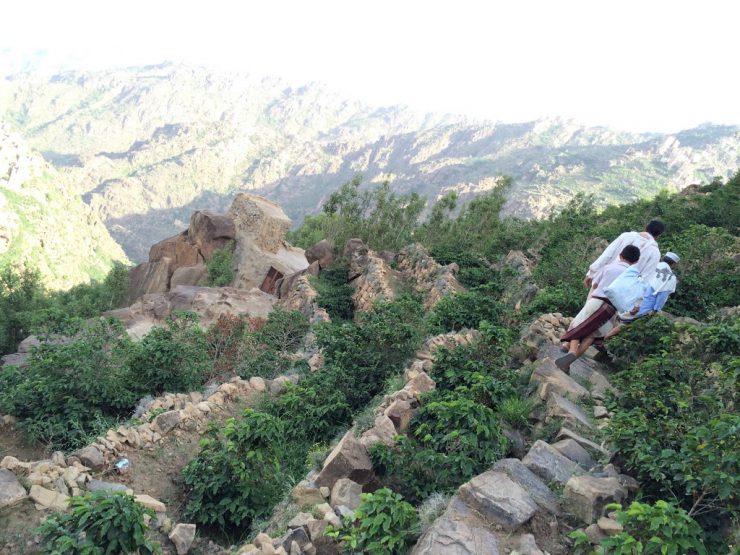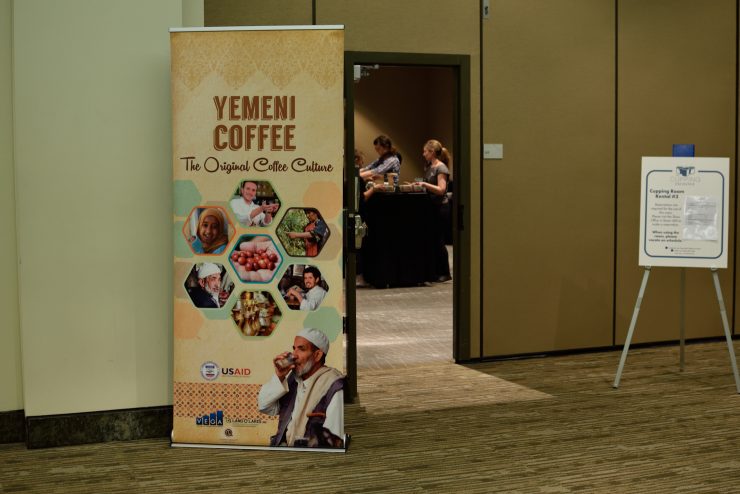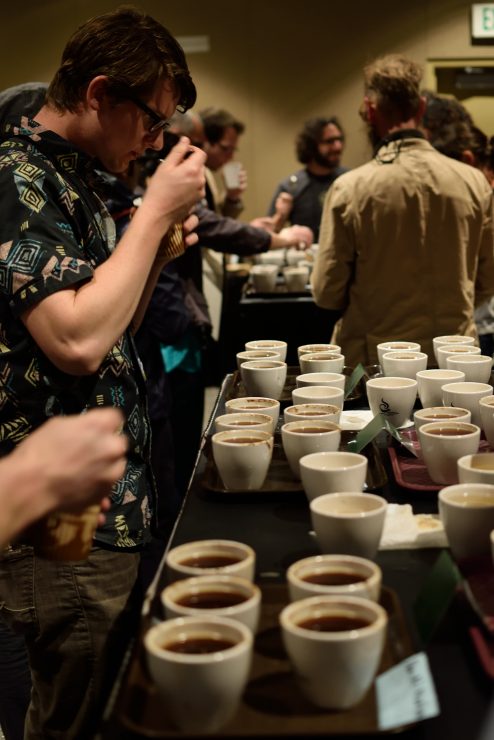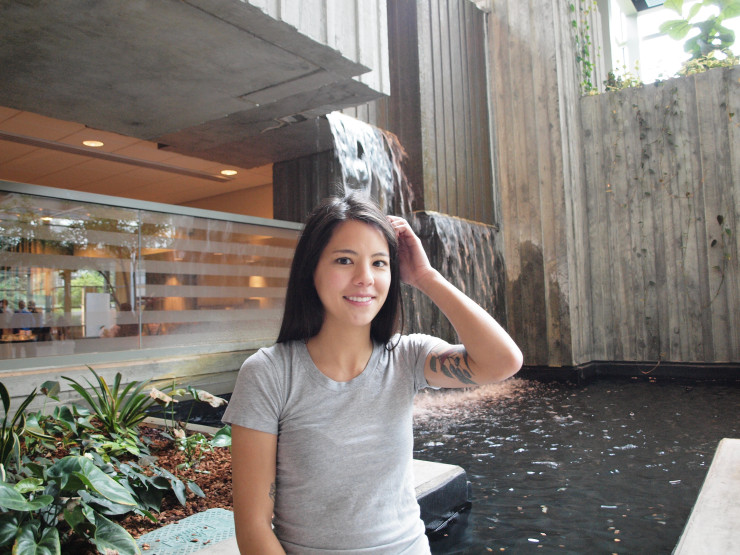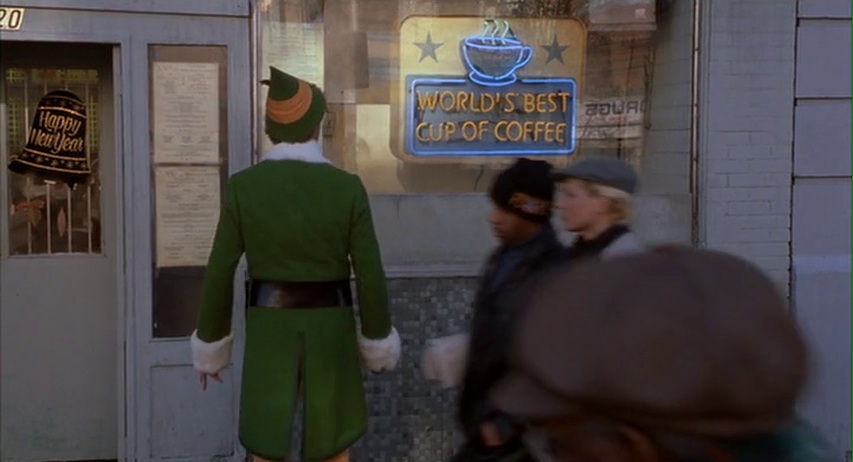On a cold spring morning in Seattle, my parents took me to breakfast at a cafe they had heard some good things about. I was groggy and bumbling my way through SCAA 2014, and a proper breakfast sounded more than pleasant. Then as much as now, things were changing; condos sprouted on the foundations of lumberyards, and plans for my coming year were approaching fruition.
When I order a coffee at a cafe that serves very special food, I have come to a point where I no longer expect the service of the coffee to match the food experience. At the Boat Street Cafe (alas, closing at the end of May) that morning, I was therefore pleasantly surprised by their offering of a Yemeni coffee.
Immediately, it became apparent that this wasn’t just any coffee, and I asked the waiter what it was they were serving. With constant (and perhaps hyperbolic) media reports about a state of chaos in the Arab world, I certainly didn’t expect to be able to drink a coffee from Yemen anywhere right then, least of all a breakfast spot. That was exactly what was placed in front of me, however. These are the coffees that people speak of as being the “Mother of all natural processed coffees” or “the rarest coffee in the world,” and having one with breakfast was something undeniably special.
The story of how that coffee got to be in front of me is something that I didn’t expect to be researching, though my last year has been spent understanding how coffee gets from one place to another in Indonesia and the Philippines. This story has been a great deal more difficult to understand; there are quite a few roadblocks that weren’t there in Southeast Asia. Currently, nobody is technically allowed to visit Yemen. Reading about the history of Yemen is in itself interesting, but coffee gets little attention even in the annals of a country with more than 3,000 years of written history, and perhaps 1,200 years of coffee production. My main device became talking to anyone acquainted with Yemen, and trying to understand their experience in lieu of having one myself.
I talked to numerous people, from USAID representatives to Yemeni exporters. Mokhtar Alkhanshali of Mocha Mill, one of my main contacts and the recent focus of much media attention, admits that understanding the history of coffee in Yemen can be difficult. “Yemen generally gets a one-liner at best in these English texts. It’s really when you get into histories in Arabic that you can learn some very neat things,” he says. He went on to bring a few details to light that I most likely wouldn’t have been able to find out otherwise.
Alkhanshali reminded me that there is a long history of cultural crossover between Ethiopia and Yemen. Though many tout Yemen as the origin of coffee, he understands the sheer volume of genetic diversity in Ethiopia’s coffee makes that country a more likely progenitor. “I may be the only Yemeni to tell you so,” he relates.
Alkhanshali takes a scholarly approach in his relationship to coffee; he has visited sites in Harar, Ethiopia, where canons from early Yemeni missionaries of Islam are still recited. Moreover, the historical kingdom of Saba (also known as Sheba—a name familiar to those who frequent Ethiopian restaurants) was known to have made trade missions from Yemen into Ethiopia as early as 1000 BCE. As early as 1200 CE, small towns throughout the Arabian peninsula were attempting to ban the popular coffee shops, where coffee was still being consumed as an unroasted brew of green coffee and husk, and was leading to discussions more intense than some people liked.
Another history more frequently alluded to is that of coffee in the Ottoman Empire, some 2,500 years after the early recorded trade missions to Ethiopia. Immediately upon his accession, Murad IV attempted a brutal ban on vice, and would even wander about the city in plainclothes imposing beheadings on anyone partaking in coffee or wine. The spoils of war at the outer reaches of the growing Ottoman Empire often included coffee, however, and hotly contested Vienna likely experienced coffee after sieges by both Suleiman the Magnificent (at the Battle of Vienna) and Mehmed IV (at the Siege of Vienna). By the mid-1700s, Louis XV’s Paris was addled with more than 600 coffee shops. Prior to the Dutch heist of coffee seeds from the port of Mokka, most if not all of this coffee was grown in Yemen.
Coffee has a history longer than anything one can find in history books, and Yemen is a curious bridge between worlds that is often overlooked.
Just in the last few years, Yemen has been getting lots of attention; from Alkhanshali, from Andrew Nicholson of Rayyan Coffee, and from Shabbir al-Ezzi (a long-time exporter of Yemeni coffees), much work is being done in-country to get these coffees to market. USAID started the 24.5m USD CASH (Competitive Agriculture Systems for High Value Crops) food security project in February 2014, with Land O’Lakes providing facilitation, and CQI supporting the coffee-specific tasks related to the project. World Coffee Research, based at Texas A&M’s Borlaug Institute, is genetically fingerprinting Yemeni coffee varieties (including Tuffahi, Dawairi, Ismaili, and Jaadi), as well as experimenting with Near Infrared Spectroscopy (NIRS) to fingerprint specific compounds in green coffee by using light refraction.
All throughout history, Yemen has been used as a bridge for trade from East to West, and vice versa. The Dutch East Indies Company used the port of Mokka as a bridge between Ethiopia and India, and brought some of the first coffee cultivation to Indonesia. Mokka was again used as a port taking coffee from Indonesia to destinations further west—eventually the island of Martinique and Central America. With the current research being done by World Coffee Research, Yemen’s unique coffees are being fingerprinted, and technology that has been used to study things as far afield as the chemical composition of stars and exoplanets may be used to assure the origin of coffee across the world.
Yemen’s story is important for the future of coffee as well. I talked to Michael Maxey, an independent consultant who has worked with a number of different coffee development projects in places like Vietnam and Costa Rica, about the work being done in Yemen. “With the current issues in Yemen, there may be some disruption of the market,” he said. “But Yemeni coffee farmers are independent and through the years have developed coping mechanisms when adversity arises.” Yemeni coffee plants have done very similar things, developing interesting characteristics such as drought and disease resistance. “The efforts of the Coffee Quality Institute and the World Coffee Research Center at Texas A&M in assessing Yemen coffee types for resistance to drought, temperature change, disease resistance, and other things are important to Yemen and the world,” said Maxey. These adaptations may help the coffee genome make it through the potential bottleneck of climate change, coffee leaf rust, or other perils.
Burnt coffee and burnt bridges leave a bitter taste. With Yemen’s current predicament, it’s likely that some facets of the coffee industry will be disrupted. But this is no reason to leave the country behind. “The most hopeful sign is the resilience of Yemen’s coffee farmers,” says Maxey, who remains positive. “I believe coffee production can rebound once things are more stable.” With an estimated 90,000 farmers and 30,000 hectares of cultivated coffee, it’s hard to imagine a Yemen without coffee. Despite embassies pulling out and other official missions stepping back as fighting continues, there is a strong sense of commitment to maintaining relationships with Yemeni producers. With the sort of attention Yemen got at SCAA this year, their presence in the coffee scene will no doubt continue and blossom.
Mokhtar Alkhanshali
As Mr. Alkhanshali traveled through Yemen, he faced the sort of hardships you might expect traveling through a war zone in a developing country: transportation mishaps, food poisoning, tapeworms, gunfire, and shrapnel. His US homecoming was just as fraught with troubles, though this time he was dealing with security screenings and the double standards a young Arab man traveling from Yemen might have to endure; indeed, must endure twice at every checkpoint along the way. Quite a rough trip, especially coming to the coffee industry after working as a paralegal dealing with immigration. “I lost more than 40 pounds after hiking up mountains, going through tribal ambushes and shootouts, trying to get the coffee back,” he told me. All of this trouble for Yemeni coffee.
His dedication started from a young age, his old friends still reminding him how he talked about coffee in his younger years. His work with Willem Boot and Boot Coffee led him toward Q Grader certification, and he simultaneously became the first Yemeni Q Grader and the first Arabica Grader of Arab descent. This, of course, was after hard training and dealing with coffee from green to cup.
This preparation was the beginning of a journey to reconnect to his family’s heritage as coffee growers just outside the area of Ibb, where some of the world’s earliest coffee cultivation took place. Bridging Western culture with that of Yemen is foremost in Alkhanshali’s mind, and “using something well-known and loved like coffee is the best way,” he says. “They really are two different worlds,” he reminisces momentarily. “On one side I can eat sushi, and the other side I’m stuck in the middle of war.” The morning I spoke with Alkhanshali was a particularly rude awakening; the cupping lab built by Nicholson that they used daily (the only cupping lab in Yemen) was nearly destroyed when a bunker buster hit a SCUD missile cache, resulting in a 5-kilometer window-breaking shockwave. Luckily, no one at the lab was hurt.
Even through all this adversity, Alkhanshali is steadfast in his commitment to Yemeni coffee. “People ask me, why do you go there, why do you risk your life? Well, I have to say to them that in order for people to believe you, and in order for people there to trust you, you have to be present. You have to commit yourself.”
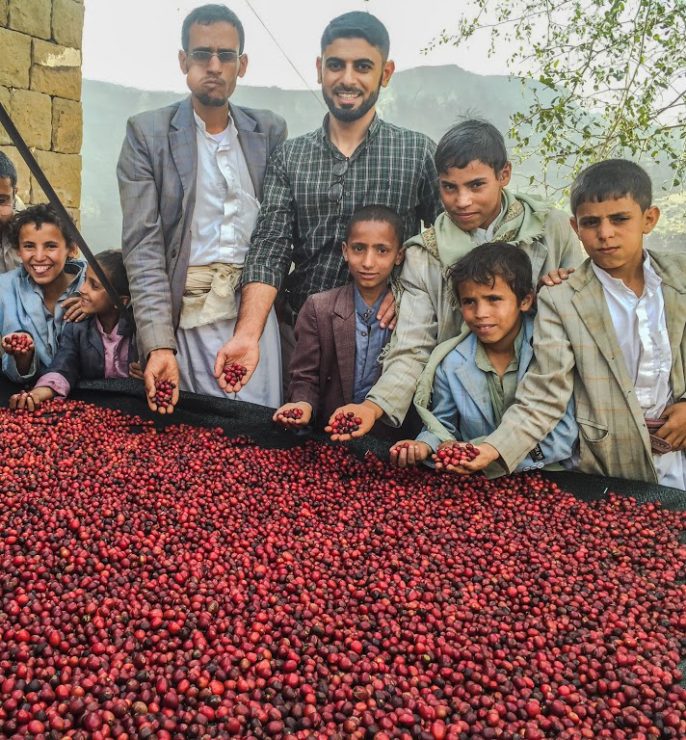
He walks the walk as well. Tracing trade routes noted in old textbooks, he left Mokka to travel to 32 different growing areas; many without roads, many who still use donkeys to transport coffee to market. Sometimes, he would arrive in an area that was supposed to have coffee, but “people would tell me ‘oh yes, we used to grow coffee 100 years ago…or 150 years ago.'” The disappointment was assuredly overwhelming at times, but throughout that three month journey, he was able to visit coffee cultivation sites that were like “something out of a fairy tale” and talk with the families who had maintained them for generations.
Alkhanshali has pledged to continue returning to Yemen once the air clears, to maintain relationships with farmers and collectors. Building inroads to remote growing territories is hard work, and maintaining them is just the beginning of a beautiful relationship. Just as his family’s 9 generations of coffee growers passed knowledge from one to another, he hopes to re-establish a bridge from Yemen to the United States, and use his experience to enrich the lives of those whose traditions have been broken by conflict.
Yemeni Coffees Cupped at the 2015 SCAA Event
At the 2015 SCAA Event in Seattle last month, Andrew Hetzel, who has worked extensively as a coffee consultant on projects around the world and is CQI’s representative for the program in Yemen, helped facilitate a cupping of Yemeni coffees from Alkhanshali, Nicholson, and al-Ezzi. As I entered the cupping a few minutes early, a few people milled about, looking at the samples and talking amongst themselves. As docents began grinding samples, the room filled up even more, until there was barely space to form a line for the cupping tables.
After recent events, people have had their interest piqued—before I left for SCAA that morning, even my parents commented that there was an extraordinary interview with a certain Mokhtar Alkhanshali on NPR. Hetzel enthused before the cupping began, “This has to be the best attended cupping ever at SCAA!” To Cybill Sigler of USAID, who worked with the organization in Yemen for three months, “The enthusiasm of the attendees really underscored the strong interest in Yemeni coffee and the premium prices it commands.” The cupping event was her favorite at SCAA. The room was packed to the gills.
As I tasted through the table, it was astounding to see the breadth of different flavors coming from Yemeni coffees. Some shone brightly, with a tart acidity. Some were mellow, with chocolate and nut flavors abounding. Others were nearly boozy, but not so much as to be called over-fermented. The variety was as impressive as the quality, with a coffee to fit anyone’s palate. One particular coffee, dried on raised beds, turned many heads in the room. James Tooill of La Colombe (the current US Cup Tasters Champion) told me about the coffee, al-Ezzi’s Haraaz-Red Marqaha, which is grown from 1,950-2,440 meters above sea level. “This altitude brings with it an intensity of flavor that as a roaster is an absolute joy to harness with the roast profile,” he said. Afterwards, I talked to Jim Cleaves, Coffee Excellence Manager for Dunkin’ Brands, who said “I’ve been in the coffee industry for a long time. These coffees are absolutely unique, and there was great quality there today.” I think everyone there would agree wholeheartedly.
For Yemeni coffee the past is rich, and the future bright; the specialty coffee scene is excited for more. Though most people will choose not to travel there at this time, other activities supporting coffee production will persist. As the conflict continues in Yemen, so does the support from the specialty coffee industry. Hopes and cupping scores are high.
Evan Gilman is an American coffee professional and Sprudge reporter focused on origin, producers, and importers. Read more Evan Gilman on Sprudge.
Yemeni coffee cultivation photos courtesy of Mokhtar Alkhanshali, with many thanks.




